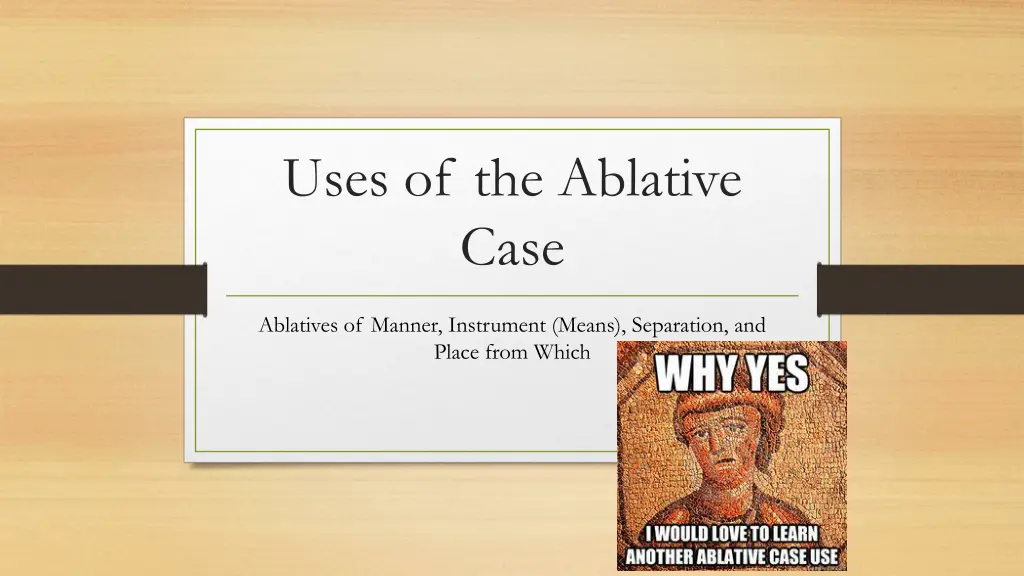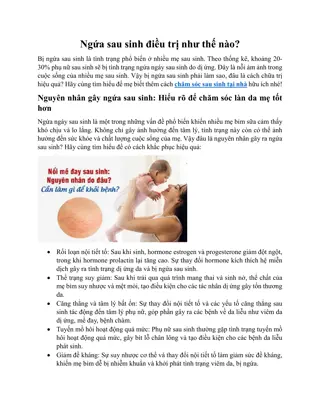
Ablative Case Uses: Manner, Means, Separation, Place
Learn about the uses of the Ablative case in Latin grammar, including Ablatives of Manner, Means/Instrument, Agent, Separation, Place from Which, and Place Where. Explore examples and concepts related to each usage to enhance your understanding of Latin language structure and expression.
Download Presentation

Please find below an Image/Link to download the presentation.
The content on the website is provided AS IS for your information and personal use only. It may not be sold, licensed, or shared on other websites without obtaining consent from the author. If you encounter any issues during the download, it is possible that the publisher has removed the file from their server.
You are allowed to download the files provided on this website for personal or commercial use, subject to the condition that they are used lawfully. All files are the property of their respective owners.
The content on the website is provided AS IS for your information and personal use only. It may not be sold, licensed, or shared on other websites without obtaining consent from the author.
E N D
Presentation Transcript
Uses of the Ablative Case Ablatives of Manner, Instrument (Means), Separation, and Place from Which
Ablative of Manner An ablative noun describes the way in which an action took place The preposition cum is very frequently used, especially if the noun is not modified by an adjective (e.g., cum fortit dine) Xerx s, r x Pers rum contra Graec s bellum cum m gn industri par re d citur. Xerxes, king of the Persians, is said to prepare war against the Greeks with great care. Tunc n v s Pers rum m gn fortit dine oppugnant. Then, with great courage, they attack the ships of the Persians.
Ablative of Means/Instrument Describes the means or instrument by or with which an action is performed using no preposition Ath ni ns s m r s ligne s serv r possunt. The Athenians can be saved by means of wooden walls.
Ablative of (Personal) Agent By what person something is done Always follows the preposition /ab Catullus tamen vult cum puell esse et puell am r . Catullus however wants to be with the girl and to be loved by the girl.
The Ablative of Separation Used with verbal expressions of freeing, lacking, and separation Usually appears without a preposition, but sometimes the prepositions /ab, d , or /ex are used. Ath ni ns s tim re l berantur. The Athenians are freed from fear.
Ablative of Place from Which Closely related in meaning and use to the ablative of separation, but denotes motion away from Always appears with a preposition terr su fugiunt They flee from their land
Ablative of Place Where Place Where is expressed in the ablative case with the preposition in Answers the question of where something took place Pythia haec verba Ath mi nsibus in templ Delphic d cit. The Pythian priestess says these words to the Athenians in the Delphic temple.
Ablatives Ablative of Manner Ablative of Means/Instrument Ablative of Agent Ablative of Separation Ablative of Place from Which Ablative of Place Where






















